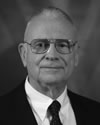At the time of the American Revolution, the future United States was a small, colonial backwater on the world stage. There were an estimated 2-3 million people living here. Yet it somehow produced an array of talented, creative thinkers and politicians — Washington, Jefferson, Adams, Madison, Hamilton, Franklin, and others — who forged this republic we still inhabit.
It’s not just that they began the effort of crafting a new nation. They also designed it: the multiple sources of power, the delineation into federal, state, and local levels, and the idea that there ought to be a balance among legislative, executive, and judicial equals. We’ve never really matched the convergence of political creativity and insight produced by that era.
To be sure, there are plenty of what-ifs and caveats. The leaders of that time failed to confront and find a way past the stain of slavery. Their blind spot when it came to the treatment of Indians was just as troubling. And one of the great what-ifs of American history is what this country would have looked like had women been able to hold and exercise political power: What if Abigail Adams, Phyllis Wheatley, Mercy Otis Warren, and Elizabeth Willing Powel — the Philadelphia salon hostess who brought together and often advised the men whose names we all know — had been more than wise counsel?
Nonetheless, when I think of the history of political leadership in this country, I’m struck by how the founders still stand out after almost two-and-a-half centuries. So I’ve been going back to read up on them, and as I do, another thing strikes me: the qualities of leadership I think I discern in their biographies have never really gone out of style. At least, I see reflections of them in my experience of memorable political leaders in our time.
For one thing, above all else great leaders of democracies seek to build a consensus. They’re inclusive. They don’t try to shut people out of the process. They’re good listeners, and not especially interested in coming into a room and trying to dominate it or impress everybody. They ask a lot of questions. They’re quick to grasp the consequences of problems that have been left unaddressed, and to try to think through the impact of what they’re proposing.
For the most part, they’re articulate: describing problems understandably and approachably is a key part of leadership, as is persuading others that you’re right. They usually think in terms of practical options: what’s the problem, what are the facts, what options do we have for dealing with the problem?
Most of them, though by no means all, know how to deal with people. And many of our greatest leaders have had a kind of energy that most of us can only admire — the sort of drive, perseverance, and wide-ranging breadth of effort that people like John Adams displayed. Politics is not a game for low-energy people.
Especially because leaders are responsible for the performance of the groups they lead. They set the agenda, they identify the problems and issues to be tackled, the priorities for action, and the style: Will it be an inclusive or exclusive effort? Will it be a pure exercise in wielding power or focused on building broad support by identifying the problems and the resources to deal with them, and by forging common ground?
It’s both a paradox and a gift of our system that we have a form of government that encourages ordinary people to solve the problems of their communities, states, and the nation as a whole, and yet effective leadership is vital. It mattered at our founding, and it’s mattered at every step of the way. Representative democracy is not a spectator sport: we all have to be involved. Yet to get anything done, to harness the collective energy and wisdom of ordinary Americans, we need leaders who possess at least some of the qualities and conscious public-spiritedness of our founders.
I don’t know if we’ll ever produce another generation of leaders like our founding generation. What I do know, however, is that every time we enter a voting booth, we have the opportunity to try.
Lee Hamilton is a Senior Advisor for the Indiana University Center on Representative Government; a Distinguished Scholar at the IU Hamilton Lugar School of Global and International Studies; and a Professor of Practice at the IU O’Neill School of Public and Environmental Affairs. He was a member of the U.S. House of Representatives for 34 years.

